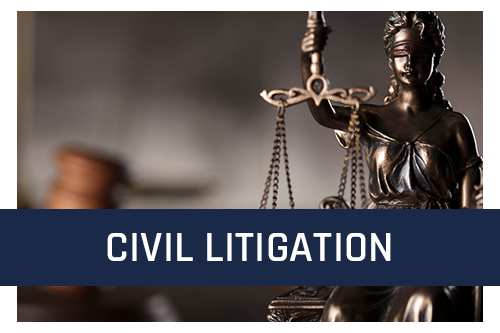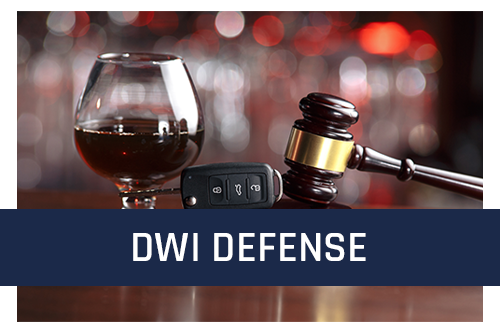Personal Injury
As stated above, personal injury cases fall into the civil litigation field. However, they involve a subset of laws that can be hard to navigate.
A personal injury occurs when a person is physically or mentally harmed through another individual’s negligent or dangerous conduct. New York State tort laws, which govern personal injuries, dictate what is considered a “civil wrong.” Like other civil litigation cases, behavior that results in an injury or wrongful death may be tried in both criminal and civil courts, however, the outcomes of both are independent of each other.
Some of the most common types of personal injury cases in New York State include:
- Automobile Accidents;
- Dog Bites;
- Government Negligence;
- Medical Malpractice;
- Premise Liabilities;
- Product Liabilities; and
- Workplace Accidents.
Personal injury cases do have statutes of limitations that dictate how long you have to bring a case before the court. For the majority of all personal injury lawsuits, the statute of limitations is generally 3 years. However, wrongful death (2 years), medical malpractice (2.5 years) and government negligence (1 year) are different.
Personal injury cases are made difficult because of the burden of proof needed to prove negligence. In fact, there are 4 issues that must be proven before an action is deemed negligent. These include:
- Duty of Care;
- Breach of Duty;
- Causation; and
- Damages.
Because of the often ambiguous nature of a personal injury case, legal counsel who has experience with personal injury cases is essential in this type of civil litigation. No one should have to live with injuries due to another person’s negligence. The Law Offices of Michael H. Ricca P.C. has the experience, passion, and knowledge to ensure you get the compensation you deserve. Contact our office today for your free telephone consultation.
Read More...
Civil Litigation
With roughly 75,000 civil court judgements in 2018 alone, there is no doubt that the field of civil litigation is ever growing. Civil litigation involves legal disputes between two or more parties. These disputes do not result in criminal charges. However, they do involve the pursuit of compensatory actions, such as financial payments. You should note that an individual’s or entity’s behavior may result in both civil litigation and criminal charges. These cases will be tried independently; an individual who is found not guilty of criminal charges may still be ordered to pay a victim restitution through civil litigation as there are different legal standards applied to civil and criminal cases.
Some of the most common types of civil litigation cases in New York include:
- Class Action Lawsuits;
- Complaints Against the City;
- Contract Disputes;
- Debt Lawsuits;
- Defamation Cases;
- Employment Lawsuits;
- Personal Injury; and
- Property Disputes.
As your litigator, or trial lawyer, The Law Offices of Michael H. Ricca P.C. strives to ensure the outcome of your case is favorable. Whether you are the party seeking compensation or are the individual being sued, our law offices will work hard to make sure justice is served. Our comprehensive understanding of the New York State Civil Practice Law and Rules (CPLR) means we have the experience to knowledgeably fight for your cause.
Civil litigation does not always mean you have to go to trial. While civil courts do hear these types of cases, arbitration and mediation are also possible paths forward.
- Arbitration: Arbitration, which involves submitting a dispute to an arbitrator who will review the case, results in a decision that can be legally binding and, in some instances, cannot be appealed. The Law Offices of Michael H. Ricca P.C. can help to prepare all the documentation and written arguments for submittal to an arbitrator and if necessary, make oral arguments as well.
- Mediation: Mediation is a more informal process than arbitration. It involves the help of a mediator, who works with both parties to resolve the dispute without having to go to court. The Law Offices of Michael H. Ricca P.C. can assist you throughout this process and help to protect your interests.
- Civil Court: During a civil court hearing, your case will be presented in front of a judge. The final decision will be based on evidence, testimony, and legal justifications. While some individuals opt for self-representation – we strongly urge you to consider working with a qualified legal representative. The outcomes of a civil court ruling can be extremely expensive; because of the complex nature of civil litigation, mistakes are easy to make. The Law Offices of Michael H. Ricca P.C. can prevent those mistakes and help you maximize the likelihood of a positive outcome.
If you or a loved one is in need of representation for a civil litigation, case – contact The Law Offices of Michael H. Ricca P.C. today for a free telephone consultation.
Read More...
Real Estate Law
Buying or selling your home or a piece of property in New York State can be as stressful as it is exciting. It is important that you hire a real estate lawyer who has a thorough understanding of local and state laws that may affect the value of your property, as well as one who shares your excitement and personal investment in the real estate transaction.
While some may feel they only need a lawyer for the closing process on a home, there is more to it than that. A real estate lawyer can assist with several areas of both the buying and selling of a property. This includes, but is not limited to:
- Broker Agreements;
- Closing Events and Documentation;
- Contract of Sales;
- Financing Arrangements;
- Homeowners Association (HOA), Condominium, Cooperative Properties and Agreements;
- Taxes;
- Titles; and
- Zoning and Survey Reviews.
A real estate lawyer should be diligent, experienced, and open about any fees associated with the buying or selling process. Whether you are looking to buy or sell a property, having an experienced real estate lawyer who fully understands your needs and the real estate process is an asset you cannot afford to forget. As properties are often the most expensive transactions you will likely handle, working to buy or sell a home on your own is ill-advised and can cost you big.
Let us ease the stress and guide you through the real estate transaction process. The Law Offices of Michael H. Ricca P.C. is here to guide you through the real estate process as quickly and easily as possible. Let our experience and skill help ease your mind while you focus on the excitement instead.
Read More...
Traffic Ticket Defense
New York State takes traffic laws very seriously. In fact, even the smallest of violation convictions can result in devastating consequences.
The New York State Points System can mean that even a single ticket can result in the loss of your driving privileges. Accruing 11 points in an 18-month period can result in a definite or indefinite suspension of your license. For example, speeding tickets alone can range from 3 to 11 points, depending on the speed you were driving. Failure to stop for a school bus stop sign and texting citations will each result in 5 points. If you are driving 5 miles over the speed limit (3 points) while texting your boss that you are running late (5 points), you realize the school bus in front of you stopped too late and blow through their stop sign (5 points) – a law enforcement office could potentially charge you with offenses that add up to 13-points. If you are convicted of these offenses, the New York State Department of Motor Vehicles (DMV) will automatically suspend your driver’s license. This is why you need to fight every ticket, every time!
Some of the most common traffic offenses in New York State include:
- Speeding Tickets;
- Moving Violations;
- Texting and Mobile Phone Tickets; and
- License Suspension or Revocation Infractions.
Losing your license is not the only reason you should fight every traffic ticket. In fact, if you accumulate 6 points within an 18-month period based on date of conviction, you will be assessed with a Driver Responsibility Assessment fee. This fee, which starts at $100 per year, over the course of a 3-year period, increases if you continue to receive citations during the repayment phase. This is on top of any other financial consequences you may face as the result of a traffic offense conviction. Insurance premiums for New York drivers are also likely to increase substantially with each traffic conviction.
Simply paying a fine is the same as being found guilty of a traffic offense in New York. The Law Offices of Michael H. Ricca P.C. makes fighting your traffic offense tickets as easy as 1-2-3!
From consultation to actual hearings, we can help you fight the offense, any fines and fees, as well as the associated points that can lead to your driver’s license being suspended. In fact, in many cases you may not even have to attend a heading at all! Call The Law Offices of Michael H. Ricca P.C. today for your free telephone consultation.
Read More...
Criminal Defense
Being charged with a crime can be overwhelming, to say the least. This is especially true in New York, where the state has taken an almost unforgiving stance on crimes and those convicted of committing them.
New York laws are plentiful. As a result, there are hundreds of crimes you can be charged with. Some of the most common include, but are in no way limited to:
- Assault;
- Burglary;
- Domestic Violence;
- Drug Offenses;
- Federal Crimes;
- Grand Larceny and Petit Theft;
- Gun and Weapon Offenses;
- Harassment;
- Probation and Parole Violations;
- Robbery;
- Sex Crimes; and
- White Collar Crimes.
The New York State Penal Law defines the potential consequences of a criminal conviction. It also defines the differences between violations, misdemeanors, and felonies in New York. These differences are as follows:
- Violations: These are the least serious types of offenses you can be convicted of. Violations, at a maximum, may result in up to 15 days in jail. Traffic infractions do not fall under the criminal violation umbrella. Fines are also possible, although are usually rather minimal. Violations typically do not result in an arrest and you will likely receive an appearance ticket from the citing law enforcement official. Actions, such as harassment and trespassing, are considered violations.
- Misdemeanors: Misdemeanors are those crimes that occur between a violation and a felony. Misdemeanor convictions can result in 16 days to 1 year in a local jail facility. Fines of up to $1,000, restitution, probation fees, and other financial consequences are also possible. You should note that continued criminal activity that results in subsequent convictions can increase the severity of the charge. For example, if you are convicted of a Class B Misdemeanor and a year later are charged with the same Class B Misdemeanor crime, you may find yourself facing a Class A Misdemeanor charge instead. Likewise, a Class A Misdemeanor can be elevated to a Class E Felony simply because your criminal record includes a previous conviction.
- Felonies: Felonies are the most serious types of crimes you can be convicted of. Ranging in severity, from Class E to Class A-I, felonies are all crimes that result in more than 1 year in jail. The penalties associated with each crime depends largely on its classification, which can include Class E, D, C, B, A-II, and A-I. Adding to the severity of the consequence is whether the crime is defined as a “violent” or “non-violent” offense. While a Class E felony may result in up to 4 years in a state prison, a Class A-II or Class A-I felony can result in a life sentence without the possibility of parole. You should note, however, that New York no longer has the death penalty.
Regardless of incarceration and fines, a criminal conviction has a long-term impact that is not often considered. Criminal records are permanent; they can devastate your future and prevent you from gainful employment, housing and public benefits, and much more. Even the smallest conviction can destroy opportunities you have not yet considered.
Misdemeanor and felony offenses in New York should never be left in the hands of an inexperienced criminal defense lawyer or an overworked and overwhelmed public defender. Your future depends on finding quality, expert, and serious representation as soon as possible after being charged with a crime. Competent and experienced counsel provides you with the best chances of a favorable outcome when it comes to a conviction or, if you decide, plea negotiations.
The Law Offices of Michael H. Ricca P.C. can help you fight your criminal charges. If you or a loved one have been charged with a crime, call our office today for your free telephone consultation.
Read More...
Driving While Intoxicated (DWI)
A DWI is arguably one of the most serious traffic offenses you can be charged with. New York takes these offenses extremely seriously because of the dangers an intoxicated driver poses to other drivers and pedestrians.
Being convicted of 1 or more DWI offenses is extremely serious. Understanding what can lead to this charge is important. That means understanding what the legal limits are. When you apply for and receive a New York State driver’s license, you have given “implied consent” for Blood Alcohol Content (BAC) testing should you be pulled over on the suspicion of being under the influence of drugs or alcohol. Failure to submit to a BAC test will result in the automatic administration suspension of your license for 1-year by the DMV, as well as a potential 1-year in jail and up to $1,000 fine even if you are not convicted of the actual DWI offense later. Anything over the legal limits, as mandated by law, will result in a DWI charge. These limits are as follows:
- Under 21 Years Old: 0.02%
- 21 Years or Older: 0.08%
- Commercial Vehicle Drivers: 0.04%
You should note that, if you have a commercial vehicle license, consequences are severe and will often result in the loss of your license, and subsequently, your job.
On top of that, it is important to understand how serious the other potential consequences of a DWI conviction are. DWI offenses range from traffic infractions to felonies, depending on the severity as well as your previous criminal record. License suspensions and revocations are both possible as well. You may also find yourself facing anywhere between 15 days in a local jail to up to 4 years in a state prison. Fines, on top of the Driver’s Responsibility Assessment fee, typically span between $300 to $5,000 as well.
That being said, beating a DWI charge is not impossible. The Law Offices of Michael H. Ricca P.C. has successfully helped clients avoid a DWI conviction. Through several personalized strategies, we have been able to help our clients receive the most favorable outcome possible given the specifics of their individual cases. Having a knowledgeable and experienced criminal defense lawyer help you fight your DWI charge so you can achieve the best possible outcome. If you or a loved one has been charged with a DWI, contact The Law Offices of Michael H. Ricca P.C. today for a free telephone consultation.
Read More...












